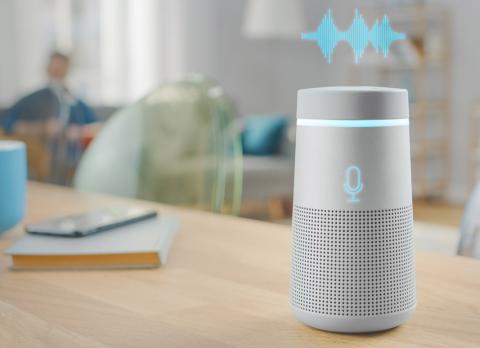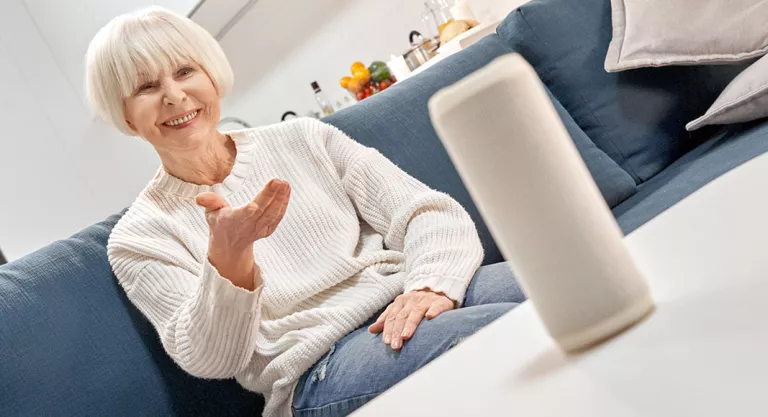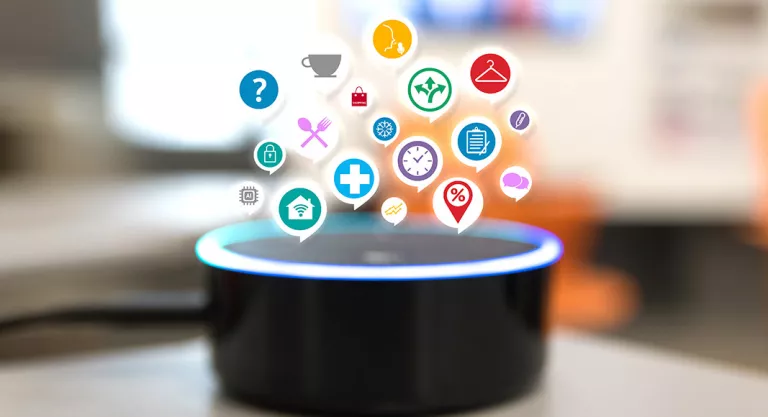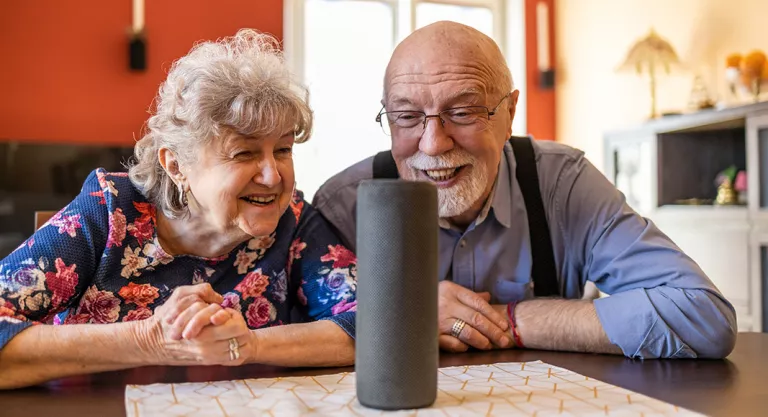
Technology is advancing more and more, we all already have at least one smartphone in our pocket and houses are beginning to be automated. An example of this is voice assistants, which are decorating more and more rooms. These artificial intelligence devices have become an essential object in many homes, and it is not for less, since they have great uses that range from solving doubts of all kinds, games or a simple stopwatch to take the cake out of the oven on time. , even telecare service for the elderly.
It is precisely in this elderly group that virtual voice assistants such as Alexa (from Amazon), Siri (from Apple), Google Assistant (Google), Cortana (from Microsoft), Bixby (from Samsung) or Xiao Ai, or Mi Ai (Xiaomi) can contribute to a better quality of life. We must not forget that technologies have advanced by leaps and bounds, so older people do not always get hold of them and for many it is a complicated task that they cannot control, and this is where voice assistants come into play.
What are voice assistants
Virtual voice assistants are intelligent devices that are found on the mobile or in discreet devices such as speakers or small tablets that mimic any other object of home decoration and that are controlled by voice, just say a keyword, which It is usually the name of the assistant (“Hey Siri”, “Alexa”, “OK Google”…) so that the device activates and begins to listen to what we say or ask and interact to give us a solution or execute the action.

The III Study on Voice and Audio in Spain, carried out by Strategic Market Research Solutions (SEIM) and Prodigioso Volcán, have determined that 54.6% of the Spanish Internet population uses this type of device to manage home automation. your home or to solve your doubts of any kind, a figure that is believed to increase considerably in a few years.
More than 56% of the Spanish Internet user population uses this type of device to manage home automation or to solve their doubts
And it is that, these devices can be asked anything, because as they have an Internet connection, they will look for the answer instantly on the network. For example, they are used to know what the weather is going to be like, set alarms, play and control music, search for a recipe, turn lights on or off –if you have compatible bulbs–, make calls without touching the phone, activate or deactivate the heating, raise the blinds automatically, set reminders such as taking medication and endless possibilities.
Advantages and utilities of voice assistants for health
In addition to the comfort of controlling everything with your voice, voice assistants can also do a lot for our health, and as we have already said, especially in the case of older adults. Here are the advantages of these virtual smart devices:
Health skills on your smart speakers
Google’s assistant and Amazon’s, Alexa, have several actions or skills functionalities, respectively, related to health, which can be downloaded to the devices for free and range from home workout suggestions to healthy menu tips or information about the on-call pharmacies in your city. One of them is Mediktor, which allows an approximate diagnosis to be obtained based on the symptoms that the person describes to the gadget, all of this taking into account their age, gender and with counter-questions to give the most accurate result possible. Obviously, this type of information can never replace that of your doctor, so it could only serve as a guide.

Other tools or skills offered by this platform are geared towards practicing physical exercise, so by downloading them – many for free – you can start doing sports like Yoga or back exercises guided by voice. This is very useful and will motivate you to exercise at home and be more active.
Finally, Nagusi Bot is a personalized virtual assistance service for the elderly. This program is “capable of interpreting the needs of the elderly person in terms of instrumental activities of daily life, relational aspects and leisure activities, offering the most relevant information for each user, in order to avoid loneliness and to promote as much as possible the independent life of the elderly at home possible for as long as possible”, they explain from Grupo SSI, one of the developers.
Disadvantages of voice assistants
However, the use of these smart devices can also come with certain disadvantages. The main one is that in order for them to react to the keyword that triggers the interaction, they have to be continuously listening, which invades the privacy of the user. Everything that is said or the noises that are generated are recorded and stored on the servers of the device’s company.
This confidential information of what we talk about in our day to day life in many cases is used for commercial purposes, for example, to show us advertisements on the phone related to something we have said, something similar to what happens with the well-known cookies of web pages. This has just been confirmed by a study by several North American universities, which states that “we discovered that Amazon processes voice data to infer the interests of users and uses it to publish targeted ads on the platform (Echo devices) and outside the platform. (Web). Smart speaker interaction leads to up to 30x higher ad bids from advertisers.” Practices on the other hand that are often not clearly described in their privacy policies.
The great disadvantage of voice assistants is that they are constantly listening to what we say, data that can be used for commercial purposes
In addition, when searching for information from the Internet, attendees do not have the ability to know which content is better than another or which is the most reliable source, this is a problem, especially in cases where health-related information is sought. An example of this is given by research published in the journal Annals of Family Medicine, which shows that some voice assistants were not able to provide verbal answers to questions about cancer detection, while others did, but from sources unreliable or whose information was not accurate.
Therefore, it may not be a good way to obtain quality information of this type, and it should always be complemented with a specific search on quality pages such as Webconsultas or directly with your doctor or specialist.

Another problem that is being observed in these devices is that they do not provide the necessary help in some cases. For example, a study published in JAMA Internal Medicine has found major flaws in its operation, and that is that when a person declares their intention to commit suicide to the device or that they are depressed, in many of the tests carried out the gadget understands what is being said. says but they do not provide information on suicide hotlines or other appropriate resources. This is because they do not recognize the concern of what is said or the tone of anguish with which it is narrated.
The future of voice assistants
As with the metaverse, an augmented or virtual reality, voice assistants must continue to develop, as they have great potential. It is predicted that in the field of health, these devices could, for example, be used by a surgeon to listen to information from the patient about their medical history or their daily medication schedule. The same can happen with any health professional, who could quickly receive any data about the patients in the consultation through the sound emitted by one of these voice assistants.
In addition, in the field of health care, work is being done to try to integrate voice assistants into health care systems, and if achieved, it would be possible for people to have their health appointments by conversing with the device. This could help patients get accurate and reliable advice and reduce the chance of readmission.
Finally, another example of what is to come can be seen in the agreement that the United Kingdom’s National Health Service has signed with Amazon, in which they join forces to offer reliable health information through Alexa to chronic patients. There are so many utilities that can be given to these devices that soon we will not be able to live without one of them on our shelves.
.